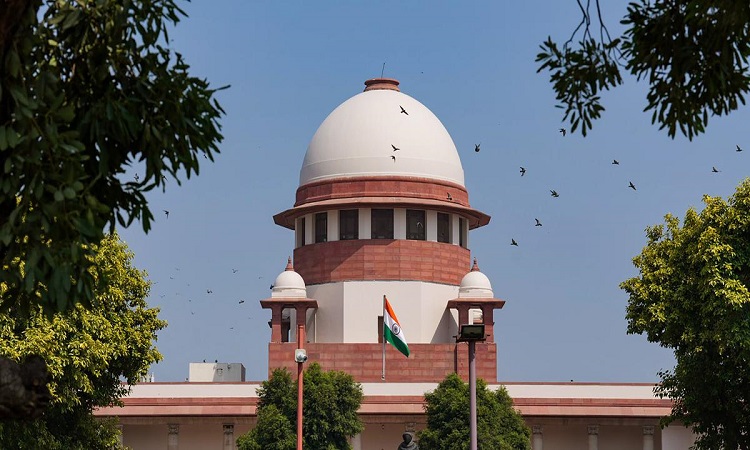Air India urination case: SC issues notice on woman victim's plea for guidelines to deal with unruly passengers
The Supreme Court on Monday issued notice to the Centre and others on a plea filed by a 72-year-old woman, who was urinated upon in a New York-Delhi Air India flight last November by an allegedly inebriated passenger, seeking direction to DGCA and all airlines to frame mandatory SoP and zero tolerance rules to deal with unruly passengers and onboard sufferers. Read further on Dynamite News:

New Delhi: The Supreme Court on Monday issued notice to the Centre and others on a plea filed by a 72-year-old woman, who was urinated upon in a New York-Delhi Air India flight last November by an allegedly inebriated passenger, seeking direction to DGCA and all airlines to frame mandatory SoP and zero tolerance rules to deal with unruly passengers and onboard sufferers.
A bench of Chief Justice of India DY Chandrachud and Justices PS Narasimha and JB Pardiwala posted the matter for hearing in July.
Hema Rajaraman sought direction that the Directorate General Civil Aviation (DGCA) to include in the CAR an explicit zero-tolerance policy with respect to "unruly/disruptive behaviour", which would mandate reporting to it and to law enforcement, failing which action would be taken against the airlines in all cases.
"Direct the Respondent No.2 (DGCA) that the Civil Aviation Requirements (CAR) dated May 2017 of the DGCA should consider "drunkenness" or "inebriation" on its own to be considered unruly/disruptive behaviour on an aircraft," the plea read.
"Ministry of Civil Aviation and DGCA to solicit the SoPs and the Operations Manuals as required under the law from the airline companies laying down procedures for handling unruly/ disruptive behaviour in airports and on aircraft, and to ensure that the same is in compliance with the DGCA norms," the plea added.
Also Read |
Man Urinates On Woman Passenger Onboard New York-Delhi Flight, DGCA Seeks Report From Air India
Accused Shankar Mishra was arrested from Bengaluru on January 6 for the incident of November 26, 2022, for urinating on a woman in the business class of the flight. The accused was granted bail later.
The plea said that in fact, the cabin crew "facilitated" the handing over of her mobile phone number to the man in order for him to "reimburse the cost of shoes, dry-cleaning, etc".
She was made to sit on the "Very same seat that was wet and smelled of urine", she added. The plea said that her suffering was compounded when the crew "Coerced her to enter into a settlement with the passenger who urinated on her".
"She continues to deal with the trauma of the incident," she said. The plea sought direction from the Ministry and DGCA to "Set guidelines on alcohol policy on international flights of Indian carriers to protect passengers and airline staff, including setting limits on the quantity of alcohol served, without any discrimination based on the class of travel."
"Direct DGCA to amend its Passenger Charter to include the rights and recourse for passengers subject to any sort of abuse by staff passengers, which should include redressal mechanisms for victims via an Ombudsman and also parameters of compensation," added the plea.
Also Read |
SC grants bail to two persons in illegal mining case in Jharkhand
The petition referred to the statistics tabled in the Rajya Sabha on February 6, which show that only 63 unruly passengers were put on the 'No Fly' lists.
There would be numerous more incidents with no action taken, said the plea, adding, "With the world's third highest air traffic, and with 132 airports, India needs to ensure that its passengers, both domestic and foreign can travel with a minimum of safety and security. Particularly with 150 million senior citizens forming a sizeable vulnerable group, positive steps need to be taken to make flying safe."
The plea also highlighted how media reports on the incident concerning her were "Full of conjectures and surmises". She asked the court to consider how media reports based on conjectures may affect sub judice cases in the absence of clear guidelines. (ANI)
 Dynamite News
Dynamite News 